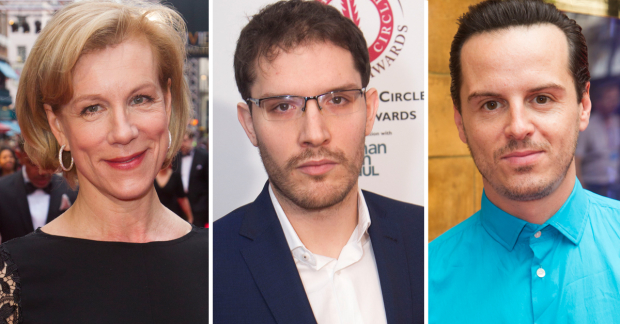Robert Icke's unofficial repertory company offers thrilling possibilities
Sarah Crompton explores the director’s inclination to develop ongoing relationships with actors, including Juliet Stevenson and Lia Williams

© Dan Wooller for WhatsOnStage
When I look down the theatrical treats in store in February, one stands out: Andrew Scott as Hamlet at the Almeida, directed by Robert Icke. One of the brightest and most charismatic actors working today. On stage in Shakespeare’s multifarious tragedy directed by one our most interesting and provocative directors. It is irresistible.
The production has been long in the making and was prompted by Scott’s desire to work with Icke on the play. This is how Icke likes to proceed: he finds an actor he wants to collaborate with and then they discuss the play that actor wants to perform. It’s been a successful strategy so far, producing the kind of rigorous and revelatory productions that we have seen with Paul Rhys in Uncle Vanya and Lia Williams and Juliet Stevenson in Mary Stuart, still running at the Almeida.
Of course all directors have actors they like, and vice versa. But it is always particularly exciting when this relationship deepens into an ongoing partnership of exploration, where they tackle various plays together. We saw that kind of artistic alchemy between Terry Hands and Alan Howard in the late 1970s, for example, when together they took on the great run of
Shakespearean kings. Fiona Shaw and Deborah Warner have illuminated many plays by their joint insights down the years.
What’s interesting about Robert Icke, however, is the way he is quietly building relationships with an entire group of actors and bringing them back to work on successive projects. Stevenson will move directly from her arduous doubling of the roles of Elizabeth and Mary in Schiller’s history play, to take on Gertrude in Hamlet (I can’t even imagine her rehearsal and performance schedule!) while Jessica Brown Findlay, who worked with Icke so memorably on the Oresteia and Uncle Vanya, is returning to play Ophelia in Hamlet.
There are three other members of that Oresteia company cast in Hamlet – including Angus Wright, an exciting prospect as Claudius – and Daniel Rabin who is playing Osric was also cast in 1984 and Mary Stuart.
From Icke’s point of view, you can see the pleasure of familiarity – it must make the rehearsal process so much easier if you don’t have to do all that getting to know each other stuff. And the addition of newcomers to a well-known mix is often artistically fruitful; it is a technique many choreographers use, finding the blend of innocence and experience both deepens knowledge and extends range and innovation.
But from an audience point of view too, this unofficial repertory company offers thrilling possibilities. When I interviewed the American actress, Cherry Jones (who is coming to the West End with her unmissable performance in John Tiffany’s The Glass Menagerie from 2 February, another highlight of the month) she told me she still met people who had seen every performance she gave when she first started out in rep.
That tradition of allowing audiences to discover new aspects of plays at the same time as seeing new qualities in actors has all but died out in this country. Yet it is a rich and satisfying one. It was, for example, immensely satisfying last year to see Kenneth Branagh‘s company switch from the tragedy of The Winter’s Tale to the silliness of Terence Rattigan’s Harlequinade – like being on the inside of an actor’s versatile talent.
What Icke is doing seems to be different. He is returning to the same performers to find depth and resonance rather than to express variety. And I, for one, can’t wait to see what they discover – and what they do next.












